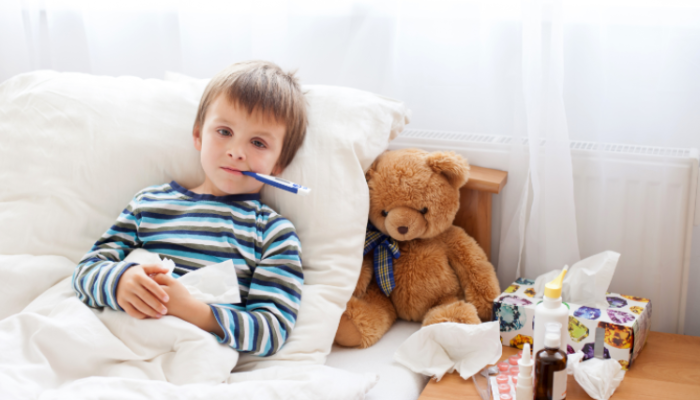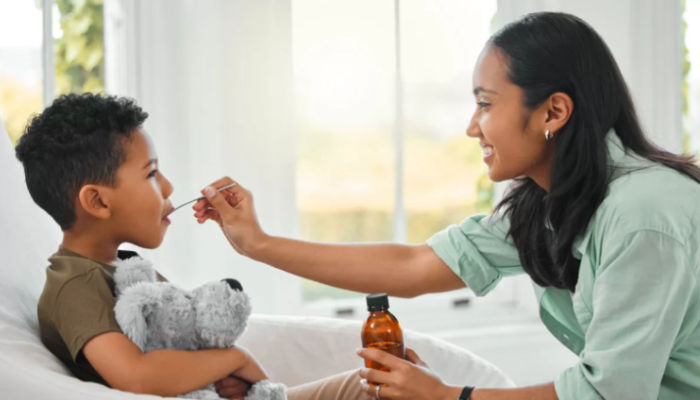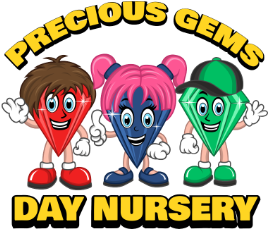How Nurseries Handle Illness and Emergencies

When you leave your child at nursery, you’re trusting their well being to others during some of their most vulnerable years. It’s normal to worry about their health and safety in an environment where they interact closely with kids and caregivers. At Precious Gems Nursery, we understand that entrusting your child to others is a significant decision. Parents often wonder: How do nurseries handle illness and emergencies? This comprehensive guide aims to answer that question, providing you with insights into the strategies and procedures nurseries use to keep children healthy and safe.
The Importance of Preparedness in Nurseries
Nurseries are vibrant environments where young minds grow and explore. However, with numerous children in close proximity, the risk of illness spreading or accidents occurring is ever-present. That’s why at Precious Gems Nursery, we place a strong emphasis on preparedness. Being ready for both common illnesses and unexpected emergencies isn’t just about having a plan on paper. It’s about creating a culture of safety that permeates every aspect of our operations. This includes:
- Regular staff training
- Up-to-date policies and procedures
- Open communication with parents
- Collaboration with local health and emergency services
By prioritising preparedness, we aim to create an environment where children can thrive, and parents can have peace of mind.
Illness Prevention Strategies
Prevention is the cornerstone of health management in nurseries. At Precious Gems Nursery, we employ a multi-faceted approach to keep illnesses at bay:
Hygiene Protocols
Good hygiene practices are our first line of defence against illness. Our protocols include:
- Hand washing procedures: We teach children the proper technique for handwashing and ensure they do it frequently, especially:
- Before and after meals
- After using the bathroom
- After outdoor play
- After handling shared objects
- Sanitization of toys and surfaces: Our staff follows a rigorous cleaning schedule:
- Toys are sanitised daily, with more frequent cleaning for items that are often mouthed by children
- High-touch surfaces like doorknobs, light switches, and table tops are disinfected multiple times a day
- We use child-safe, eco-friendly cleaning products to maintain a healthy environment without harsh chemicals
Vaccination Requirements
Immunizations play a crucial role in preventing the spread of serious diseases. At Precious Gems Nursery:
- We require all children to be up-to-date on their vaccinations as recommended by health authorities
- We maintain accurate records of each child’s immunisation status
- We educate parents about the importance of vaccinations and provide resources for those seeking more information
Daily Health Checks
Every morning, as children arrive at Precious Gems Nursery, our staff conducts quick health checks. We look for signs of illness such as:
- Fever (using contactless thermometers)
- Unusual fatigue or irritability
- Visible symptoms like runny noses, coughs, or rashes
These checks help us identify potential health issues early, allowing for prompt action to prevent the spread of illness.
Staff Training on Illness Recognition
Our staff undergoes regular training to recognize the signs and symptoms of common childhood illnesses. This includes:
- Annual refresher courses on childhood diseases
- Updates on any new or emerging health concerns
- Training on when to alert parents or seek medical attention
By ensuring our staff is well-informed, we can respond quickly and appropriately to any health concerns that arise.

Illness Policies and Procedures
Clear, consistent policies are essential for effective illness management. At Precious Gems Nursery, our policies are designed to protect all children while being fair and practical for parents.
When to Keep a Child at Home
We ask parents to keep children home if they have:
- A fever over 100.4°F (38°C) in the last 24 hours
- Vomiting or diarrhoea in the past 24 hours
- A severe cough or difficulty breathing
- An undiagnosed rash
- Symptoms of a contagious illness (e.g., pink eye, strep throat)
- Been too ill to participate in normal daily activities
We understand that keeping a child home can be challenging for working parents. However, this policy is crucial for maintaining a healthy environment for all children and staff.
Isolation Protocols for Sick Children
If a child becomes ill during the day:
- They are immediately separated from other children
- We have a comfortable, supervised “sick bay” where they can rest
- Parents are contacted promptly to arrange pickup
- The child is monitored closely until parents arrive
- Any areas the child has been in contact with are thoroughly sanitised
Medication Administration Guidelines
Administering medication in a nursery setting requires careful attention to detail. Our protocols include:
- Requiring written authorization from parents for any medication
- Ensuring all medication is in its original container with a clear, current label
- Storing medication in a locked cabinet, out of children’s reach
- Maintaining a detailed log of all medications administered, including dosage and time
- Having at least two staff members trained in medication administration
Communication with Parents about Illnesses
Open, timely communication is key to managing illnesses effectively. At Precious Gems Nursery:
- We inform parents immediately if their child becomes ill during the day
- We notify all parents if there’s an outbreak of a contagious illness in the nursery
- We provide regular updates on any ongoing health situations
- We offer resources and information to help parents understand and manage common childhood illnesses
By keeping parents well-informed, we foster a partnership in maintaining a healthy nursery environment.
Emergency Preparedness in Nurseries
While managing illnesses is a daily part of nursery life, we must also be prepared for less common but potentially more serious emergencies. At Precious Gems Nursery, emergency preparedness is a top priority.
Types of Emergencies Nurseries Might Face
We prepare for a wide range of potential emergencies, including:
- Medical emergencies: Such as severe allergic reactions, injuries, or sudden illnesses
- Natural disasters: Including fires, floods, or severe weather events
- Security threats: Like unauthorised intruders
- Infrastructure issues: Such as power outages or water main breaks
Emergency Action Plans
For each type of emergency, we have detailed action plans in place. These plans outline:
- Immediate steps to ensure children’s safety
- Staff roles and responsibilities
- Evacuation procedures (if necessary)
- Communication protocols with parents and emergency services
- Procedures for accounting for all children and staff
Our emergency plans are regularly reviewed and updated to ensure they remain current and effective.
Staff Training for Emergencies
All staff at Precious Gems Nursery receive comprehensive emergency training, including:
- First aid and CPR certification, renewed annually
- Fire safety and evacuation procedures
- Natural disaster preparedness
- Use of emergency equipment (e.g., fire extinguishers, emergency radios)
We also conduct regular drills to ensure all staff and children know exactly what to do in various emergency situations.

Handling Medical Emergencies
Medical emergencies require quick thinking and decisive action. Here’s how we prepare and respond:
First Aid Procedures
All our staff are trained in basic first aid. We have well-stocked first aid kits readily available throughout the nursery, including:
- Bandages and gauze
- Antiseptic wipes
- Cold packs
- Disposable gloves
Our staff knows how to handle common injuries like cuts, scrapes, and minor burns, as well as how to recognize when professional medical help is needed.
CPR and Choking Response
Several staff members are certified in CPR and know how to respond to choking incidents. We conduct regular refresher training to keep these skills sharp. In our infant rooms, all staff are trained in infant CPR.
Allergic Reactions and Use of EpiPen
With food allergies becoming increasingly common, we take allergic reactions very seriously. Our approach includes:
- Maintaining detailed records of all children’s allergies
- Training staff on signs of allergic reactions
- Having protocols in place for using EpiPen
- Practising allergy emergency drills regularly
Calling Emergency Services
We have clear guidelines on when and how to call emergency services. Our staff knows to err on the side of caution – if there’s any doubt about the severity of a situation, we don’t hesitate to call for professional help.
When calling emergency services, we ensure:
- A staff member stays with the affected child at all times
- Another staff member makes the call, providing clear, concise information
- The child’s emergency contact information is readily available
- Someone is designated to meet and guide emergency responders upon arrival
Natural Disaster Preparedness
Natural disasters can strike with little warning. At Precious Gems Nursery, we’re prepared for various scenarios:
Fire Safety and Evacuation Plans
Our fire safety measures include:
- Regularly inspected and serviced fire extinguishers
- Smoke detectors in all rooms
- Clearly marked evacuation routes
- Monthly fire drills
- A designated safe assembly point outside the building
During a fire drill or actual emergency:
- The alarm sounds
- Staff calmly lead children out of the building using practised routes
- Infants and toddlers are placed in evacuation cribs
- Staff take attendance books to account for all children
- Everyone meets at the designated assembly point
- A final headcount is conducted
Severe Weather Protocols
For events like severe storms:
- We have designated safe areas within our building
- Staff guide children to these areas when warnings are issued
- We keep emergency supplies (water, snacks, flashlights) in these safe areas
- We maintain battery-powered weather radios for updates
- We practise severe weather drills regularly
Lockdown Situations
While we hope never to use them, we have lockdown procedures in place to keep children safe in case of external threats. These include:
- Securing all entrances
- Moving children to safe, interior rooms
- Maintaining silence
- Communicating with authorities and parents
Security Measures in Nurseries
Keeping children safe from external threats is a top priority. Our security measures include:
- Access control systems: Only authorised individuals can enter the nursery
-
Visitor policies: All visitors must sign in, wear identification badges, and be escorted while on premises
- Child pickup procedures: We have strict protocols for child pickup, including:
- Authorised pickup lists provided by parents
- ID checks for anyone picking up a child
- Password systems for emergency pickups
Legal and Regulatory Considerations
Nurseries must comply with various regulations regarding health and safety. This includes:
- Meeting licensing requirements for emergency preparedness
- Maintaining appropriate insurance coverage
- Adhering to privacy laws when handling health information
- Understanding liability issues related to emergencies
At Precious Gems Nursery, we stay up-to-date with all relevant regulations and exceed minimum requirements wherever possible.
Best Practices for Nurseries in Illness and Emergency Management
Based on our experience at Precious Gems Nursery and industry best practices, here are some key recommendations:
- Regular drills and simulations: Practice makes perfect. Regular drills help staff and children know exactly what to do in an emergency.
- Partnerships with local health and emergency services: Building relationships with these agencies can lead to better coordination during real emergencies. Consider inviting local firefighters or paramedics to visit the nursery and talk to the children.
- Continuous staff education and training: Health and safety best practices are always evolving. Ongoing training keeps staff up-to-date and confident in their abilities.
- Involving parents in emergency planning: Parents can provide valuable input and support for emergency plans. Consider forming a parent advisory committee focused on health and safety.
- Regular review and update of policies: At least annually, review all health and safety policies to ensure they remain current and effective.
- Prioritise mental health: Remember that emergencies can be stressful for children and staff alike. Have resources available for mental health support post-emergency.
- Invest in technology: While not a replacement for human vigilance, technology like security systems and emergency alert apps can enhance safety.
- Create a culture of safety: Encourage all staff to speak up about potential safety issues and to always err on the side of caution.
Conclusion
At Precious Gems Nursery, we know that handling illness and emergencies effectively is a critical part of providing quality childcare. It requires careful planning, thorough training, and a commitment to best practices. By implementing comprehensive strategies for prevention, preparedness, and response, nurseries can create a safer environment for children and peace of mind for parents.
Remember, emergency preparedness is an ongoing process. As we learn from each experience and as new best practices emerge, we continually update and improve our procedures. Our goal is always the same: to provide the safest, healthiest environment possible for the precious children in our care.
By choosing a nursery that prioritises health and safety, parents can feel confident that their children are in good hands, even when the unexpected occurs. At Precious Gems Nursery, we strive to be more than just a childcare provider – we aim to be a partner in your child’s health, safety, and overall well-being.
